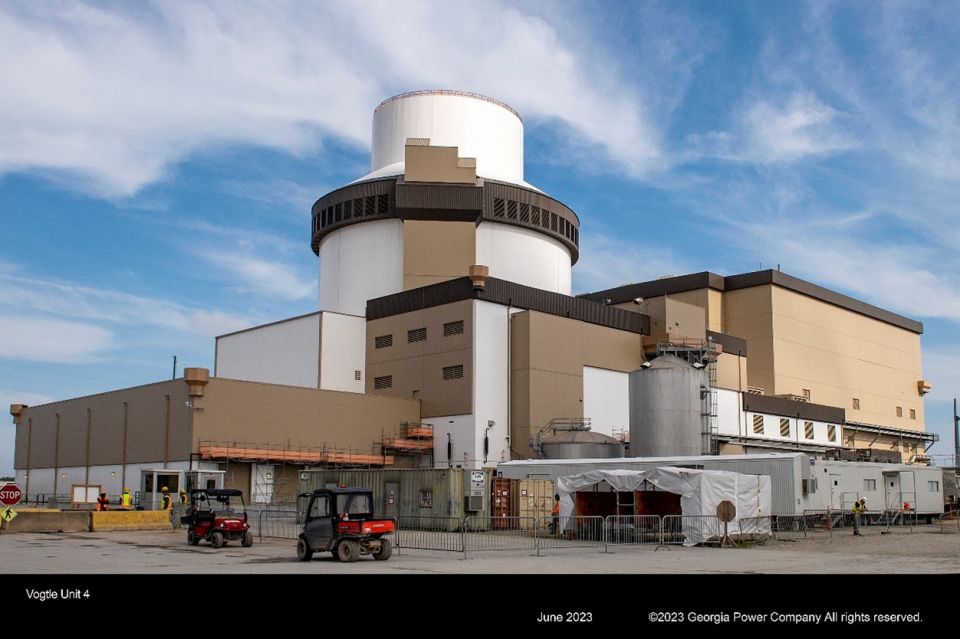Nuclear Litigation: Current Cases And Legal Developments

Table of Contents
Types of Nuclear Litigation
Nuclear litigation encompasses a broad range of legal actions stemming from the various aspects of nuclear technology and its impact. These cases often involve intricate scientific, technical, and ethical considerations, making them particularly complex to navigate. Let's examine some key categories:
Nuclear Accident Claims
Lawsuits arising from nuclear accidents, like Chernobyl (1986) and Fukushima (2011), present unique challenges. These cases often involve:
- Transnational Litigation: Determining jurisdiction and applicable law becomes exceedingly complex when victims and responsible parties are located in different countries. International conventions and treaties, such as the Convention on Supplementary Compensation for Nuclear Damage, play a vital role.
- Compensation Issues: Assessing and compensating victims for a wide range of damages, including physical injuries, property damage, economic losses, and psychological trauma, requires intricate calculations and often involves lengthy legal battles.
- Long-Term Health Effects: The delayed and long-term health consequences of radiation exposure pose significant challenges in establishing causation and quantifying damages.
Nuclear Waste Disposal Litigation
The safe and responsible disposal of nuclear waste remains a highly contentious issue, sparking numerous legal battles. Key issues in this area include:
- Environmental Impact Assessments: Rigorous legal challenges focus on the adequacy of environmental impact assessments and the potential long-term environmental consequences of proposed disposal sites.
- Regulatory Compliance: Lawsuits often allege non-compliance with environmental regulations and safety standards concerning nuclear waste storage and transport.
- Long-Term Liability: Concerns about the long-term liability for the management and potential leakage of radioactive waste from disposal sites drive significant litigation. Future generations' potential exposure to radiation is a major concern.
- Community Opposition: Local communities often actively oppose the siting of nuclear waste repositories, leading to protracted legal battles focused on procedural fairness and environmental justice. These cases frequently involve arguments based on environmental law and principles of public participation.
Radiation Exposure and Health Claims
Lawsuits related to radiation exposure and subsequent health problems present significant evidentiary challenges:
- Causation: Establishing a direct causal link between radiation exposure and specific health conditions (e.g., cancer) can be extremely difficult, requiring expert scientific testimony and epidemiological studies.
- Latency Periods: The long latency periods between radiation exposure and the manifestation of health problems further complicate the process of proving causation.
- Damage Assessment: Quantifying the damages resulting from radiation-induced health problems requires careful consideration of various factors, including the severity of the illness, lost income, and medical expenses. This often necessitates complex medical and economic evaluations.
Key Legal Developments in Nuclear Litigation
The field of nuclear litigation is constantly evolving, influenced by changes in liability laws, emerging legal issues, and the increased role of international legal frameworks.
Changes in Liability Laws
Significant legislative changes across various jurisdictions are reshaping the landscape of nuclear liability. These changes often impact:
- Compensation Schemes: Modifications to national and international compensation schemes directly affect the amount and availability of compensation for victims of nuclear accidents or radiation exposure.
- Liability Limits: Changes in liability limits can significantly influence the potential financial exposure of nuclear operators and other parties involved. These limits can also affect the ability of plaintiffs to receive full and fair compensation.
- Strict Liability Regimes: Many jurisdictions are adopting or refining strict liability regimes for nuclear operators, regardless of fault, meaning operators bear responsibility for damage caused by their activities.
Emerging Legal Issues
Several emerging issues are pushing the boundaries of nuclear litigation:
- Climate Change Impacts: The impacts of climate change on the safety and security of nuclear facilities are creating new legal challenges, such as increased risks of flooding or extreme weather events.
- Decommissioning Liability: The costs and liabilities associated with decommissioning nuclear power plants and managing the resulting radioactive waste are leading to increased litigation.
- Cybersecurity Threats: The vulnerability of nuclear facilities to cyberattacks raises significant concerns about potential liability for damage caused by cyber breaches.
Role of International Courts and Treaties
International courts and treaties increasingly play a crucial role in resolving transboundary nuclear disputes. This involves:
- International Conventions: Conventions like the Vienna Convention on Civil Liability for Nuclear Damage provide frameworks for international cooperation in addressing nuclear incidents.
- International Arbitration: International arbitration mechanisms are frequently used to resolve disputes between states or between states and private entities involving nuclear matters.
- International Court of Justice (ICJ): The ICJ may be involved in resolving disputes concerning the interpretation or application of international treaties related to nuclear liability.
Current High-Profile Nuclear Litigation Cases
Several high-profile nuclear litigation cases are currently underway or have recently concluded. While detailed descriptions are beyond this article's scope, examples include ongoing litigation concerning the long-term health effects of the Chernobyl disaster and lawsuits challenging the safety of nuclear waste disposal sites in various countries. For specific case details, refer to legal databases and news reports relevant to the specific jurisdictions.
Conclusion
Nuclear litigation is a multifaceted and evolving field encompassing accidents, waste disposal, and health claims. Significant legal developments, including changes in liability laws and the increased involvement of international legal frameworks, continue to shape this area of law. Staying updated on the latest developments in nuclear litigation is crucial for understanding the complex legal and ethical challenges associated with nuclear technology. Deepen your understanding of nuclear litigation by exploring resources like the World Nuclear Association's legal publications and journals specializing in environmental and nuclear law. Learn more about the intricacies of nuclear litigation and its implications for the future of nuclear energy.

Featured Posts
-
 Remembering Priscilla Pointer Actress Dead At 100
May 01, 2025
Remembering Priscilla Pointer Actress Dead At 100
May 01, 2025 -
 Longtime Actress And Educator Priscilla Pointer Dead At 100
May 01, 2025
Longtime Actress And Educator Priscilla Pointer Dead At 100
May 01, 2025 -
 Kshmyr Tnaze Bhart Awr Pakstan Ke Drmyan Jng Ka Khtrh
May 01, 2025
Kshmyr Tnaze Bhart Awr Pakstan Ke Drmyan Jng Ka Khtrh
May 01, 2025 -
 100 Year Old Actress Priscilla Pointer Known For Carrie Passes Away
May 01, 2025
100 Year Old Actress Priscilla Pointer Known For Carrie Passes Away
May 01, 2025 -
 Reactor Power Uprate Your Guide To The Nrc Application Process
May 01, 2025
Reactor Power Uprate Your Guide To The Nrc Application Process
May 01, 2025
Latest Posts
-
 Tributes Pour In After Passing Of Dallas Star 100
May 01, 2025
Tributes Pour In After Passing Of Dallas Star 100
May 01, 2025 -
 Dallas Stars Death Reflecting On The 80s Soap Opera Golden Age
May 01, 2025
Dallas Stars Death Reflecting On The 80s Soap Opera Golden Age
May 01, 2025 -
 Dallas Icon Passes Away At The Age Of 100
May 01, 2025
Dallas Icon Passes Away At The Age Of 100
May 01, 2025 -
 The End Of An Era Dallas Star And 80s Soap Legend Passes Away
May 01, 2025
The End Of An Era Dallas Star And 80s Soap Legend Passes Away
May 01, 2025 -
 100 Year Old Dallas Star Passes Away
May 01, 2025
100 Year Old Dallas Star Passes Away
May 01, 2025
